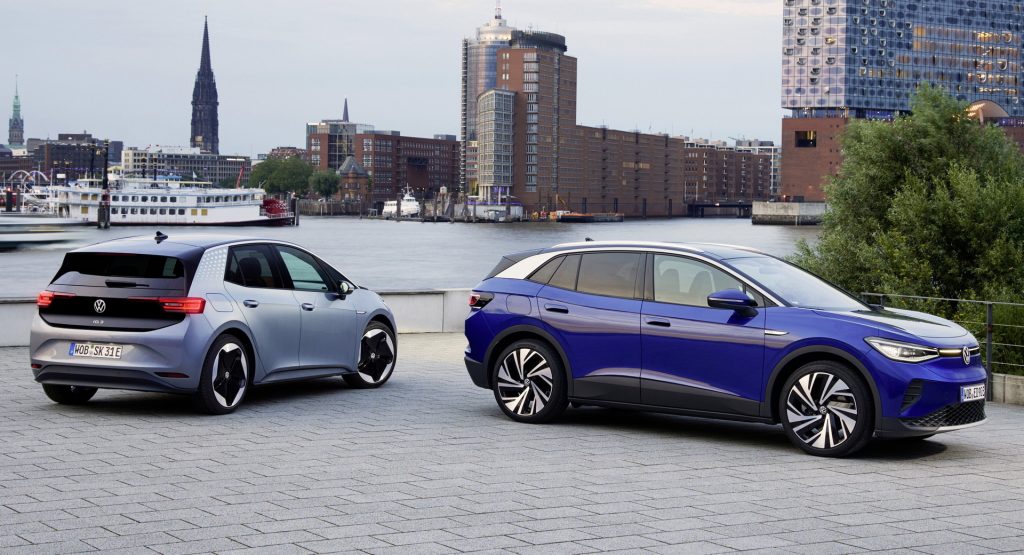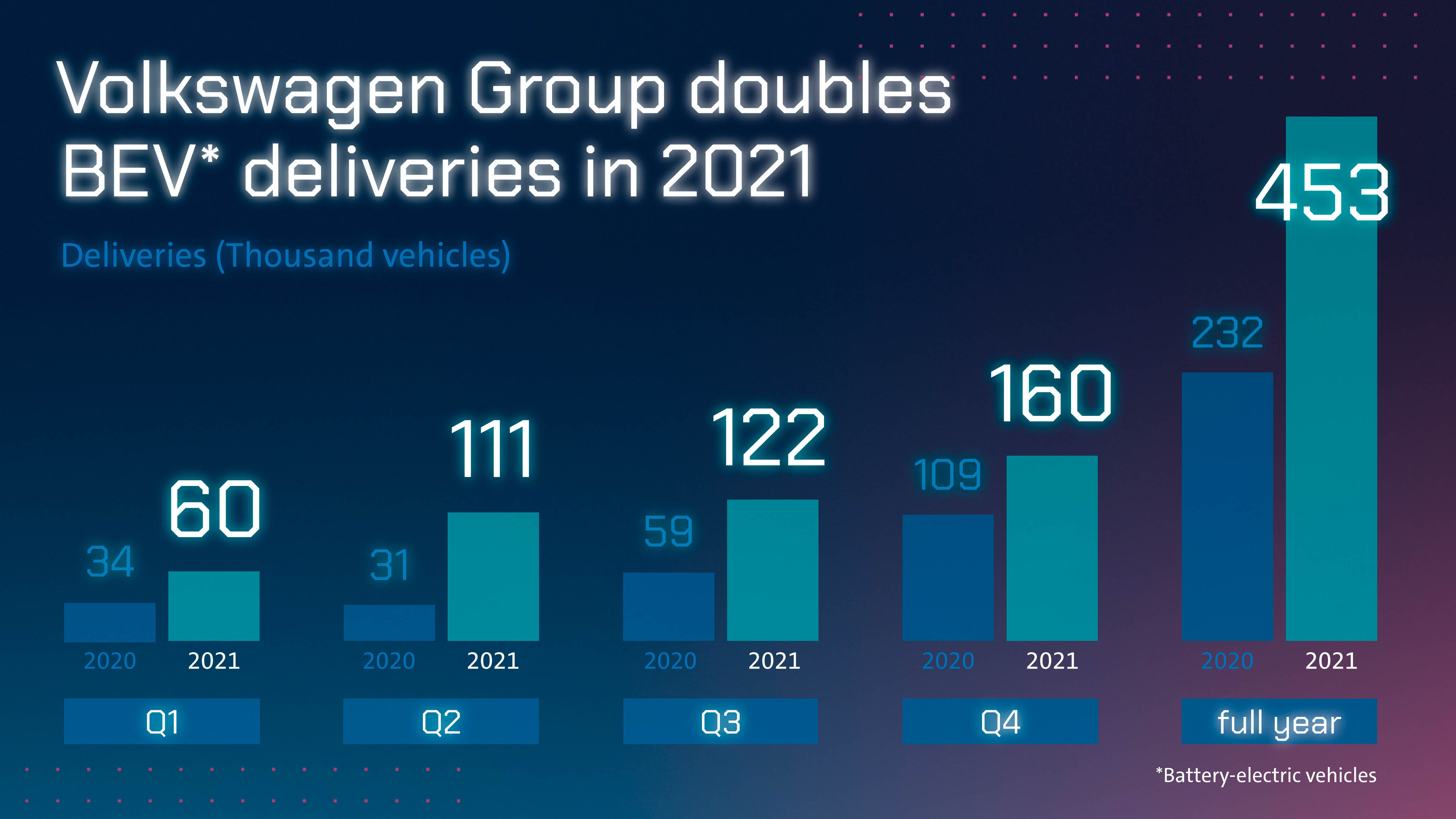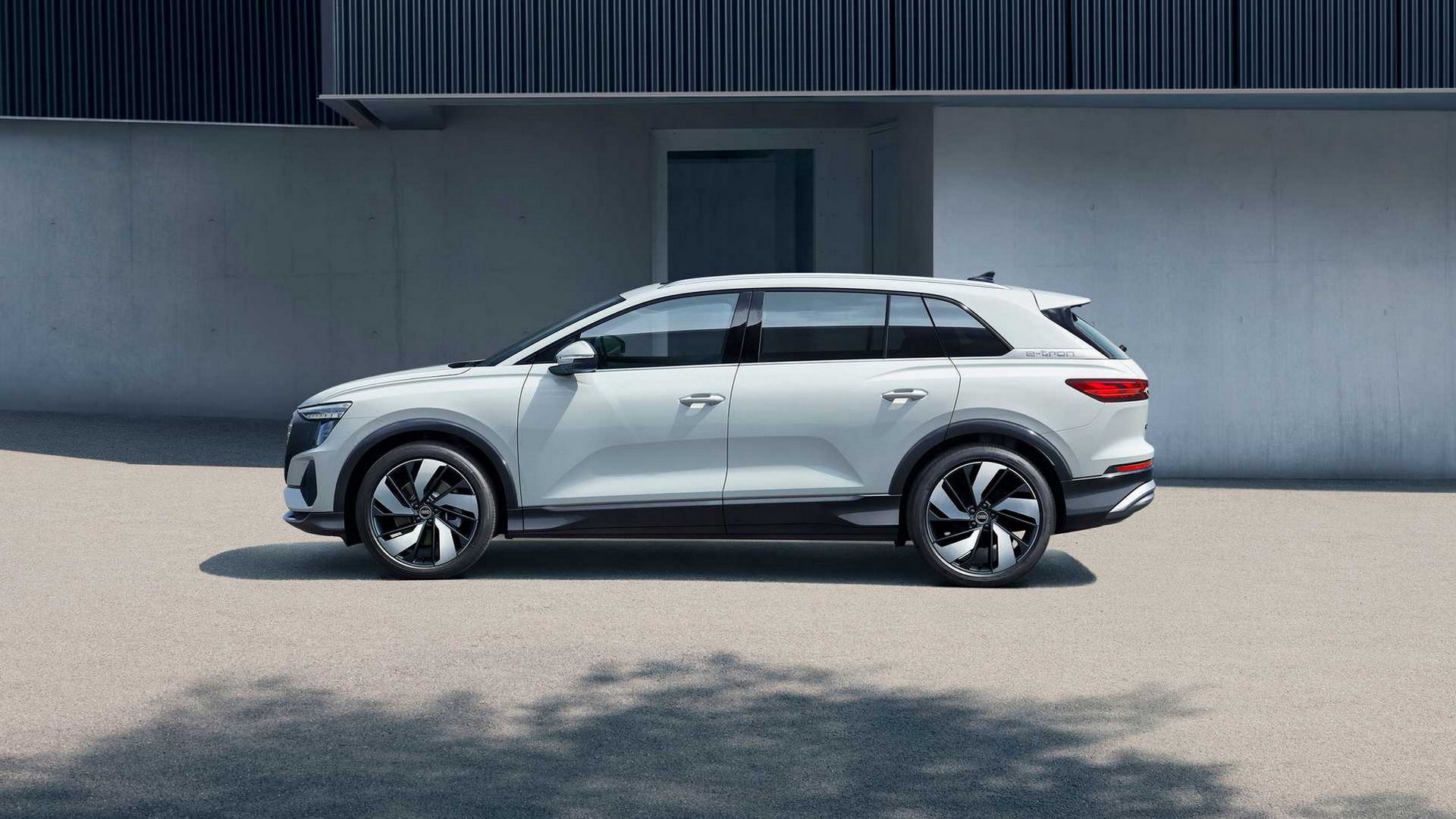Volkswagen is on course to achieve its “New Auto” group strategy, as the company aims to transform itself from a vehicle manufacturer to a “leading, global software-driven mobility provider.” However, overall global sales saw a decline of 4.5 percent.
BEVs See Increases
Sales of battery electric vehicles have nearly doubled through 2021, with 452,900 BEVs delivered, representing an increase of 96 percent. It makes the Volkswagen Group the European market leader for battery electric vehicles, while it sits behind Tesla for U.S. BEV market share.
Meanwhile, the VW Group managed to quadruple deliveries of electric vehicles in the key Chinese market, with 92,700 units shifted, despite overall deliveries of all units taking a hefty hit (more on that below).
See: Porsche To Pay Volkswagen $113M To Get Out Of An EV Project
The best-selling EVs for VW were the ID.4, with 119,600 units, and the ID.3 with 75,500. The Audi e-tron (including the Sportback) came in third, with 49,200 units, and the Skoda Enyaq iV fourth, with 44,700.
It wasn’t just BEVs that saw a rise in popularity, though. Plug-in hybrids have seen an increase of 61 percent globally, with 309,500 units.
A Not So Rosy Big Picture
However, it’s still a drop in the ocean compared to total cars sold — Out of the 8,882,000 vehicles sold by the Volkswagen Group, BEVs make up just 5.1 percent of total deliveries, albeit up from 2.5 percent in 2020.
Volkswagen also noted that the global semiconductor shortage led to an overall drop of 4.5 percent in total sales (ICE cars included). Europe saw a minor drop of 2.7 percent, but Asia, and China in particular, took the brunt of the chip crisis fallout. In the Asia-Pacific region, deliveries fell by 12.4 percent year on year, while China’s numbers were down 14.1 percent.
But despite the chip crisis making an impact, the group notes that demand remains high, and order books are full. “2021 was very challenging due to global semiconductor shortages, but we nevertheless consistently implemented our clear future course towards NEW AUTO,” said Christian Dahlheim, Head of Volkswagen Group Sales.
The group expects the trends of 2021 to continue, with sources of income shifting from conventional petrol-powered products, to zero-emissions cars.







